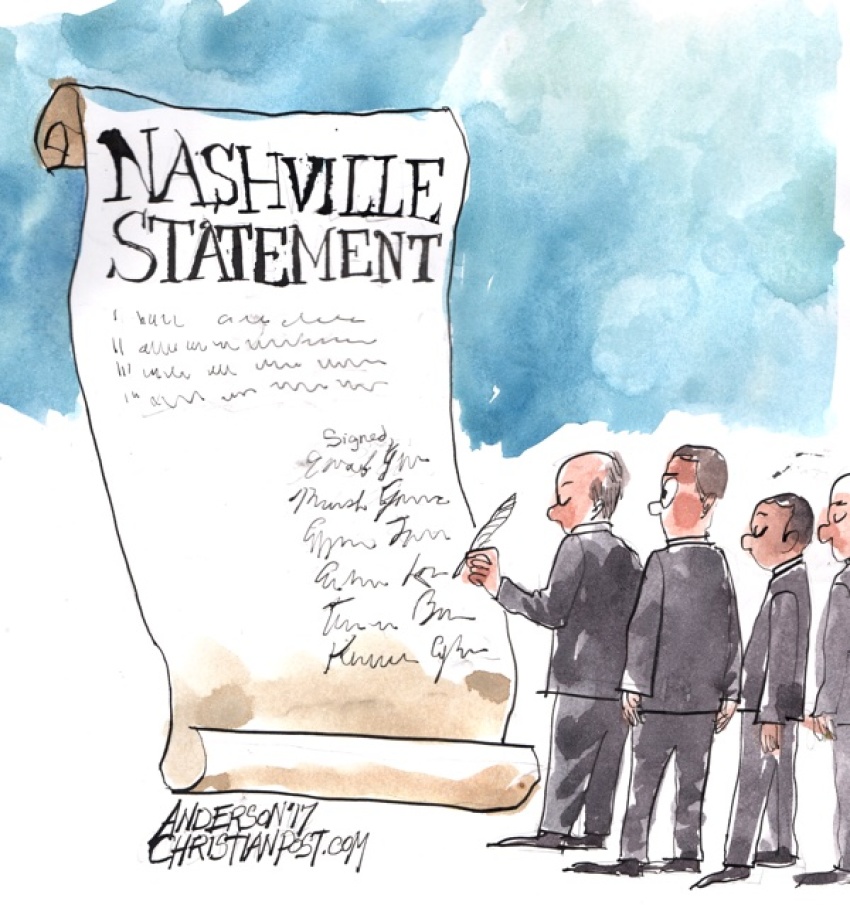Why I Signed the Nashville Statement

The Nashville Statement is a recent document addressing contemporary issues of sexuality and affirming traditional Christian views. It has been signed by a significant number of Christian leaders. Unfortunately, as we have come to expect in our polarized society, it has also occasioned the predictable firestorm of angry denunciation.
So why did I sign it?
The primary reason I signed the Nashville Statement is that, with many other Christians, I believe it expresses truth. Christians (71% of American adults according to Pew Research) hold that God has revealed Himself to humans in Christian Scripture. Many who reject this belief see it as irrational and indefensible; and yet, a former president of the American Philosophical Society has argued at great length that this claim fails to pass muster, and his views persuaded even the ardent atheist philosopher Richard Rorty on this point.

In fact, it seems that many who find the Christian view objectionable have devoted too little thought to how people come to believe what they believe. Many perceive Christians as believing in Scripture "by faith" because they have nothing better: No facts, no reasons, no logic. But this is clearly a false dichotomy. In fact, we humans are all believers, holding large parts of what we believe primarily because others around us believe it, which makes it seem plausible to us (Peter Berger's "plausibility structures"). "Facts," "reasons" and "logic" are far less determinative for what we believe than the prevailing views around us. As Earl Babbie observes in a social research text, "Most of what you and I know is a matter of agreement [with others in our culture] and belief. Little is based on personal experience and discovery. A big part of growing up in any society, in fact, is the process of learning to accept what everyone around us 'knows' is so. ... Most of what we know is a matter of believing what we've been told."
So all human beings are believers: "Our elemental assumptions and beliefs themselves cannot be empirically verified or established with certainty. They are starting points, trusted premises, postulated axioms, presuppositions — 'below' which there is no deeper or more final justification, proof, or verification establishing them. In philosophical terms, these beliefs and commitments may be 'justified,' but they are not justifiable."
So all human beings live by faith in ideas and beliefs they cannot necessarily prove — not just Christians. It is not a matter of who has justified, logical beliefs versus who has illogical, unjustifiable beliefs. It is, in fact, a matter of those who (often unreflectively) absorb the prevailing mood, who live by the "tyranny of the popular," versus those who believe they have good reasons — not persuasive to everyone — to believe that God has communicated to us something more reliable than the prevailing zeitgeist. It is the non-religious who have the circular argument: "We believe what we believe because everyone we choose to believe believes it." There is nothing to be ashamed of in siding with the vast majority of humanity in holding to the belief that God exists and that God has communicated to humans.
While Christians believe that God has revealed truth in the Scriptures, and feel bound by Scripture's authority, it is accurate and appropriate to candidly acknowledge that Christians, too, have often failed to live up to the best of their own ideals. Some have criticized the Nashville Statement for failing to acknowledge Christian failings regarding some gender or sexuality issues, and I am sympathetic to this criticism. Sometimes we have misunderstood the Bible. Sometimes we are so captured by our culture that we easily go along with what is popular. The Christian doctrine of sin ought to make Christians the most self-suspicious of our own beliefs and practices, since it is to remind us of our tendency to easily go wrong. The fact that humans often fail to live by their stated convictions does not excuse Christians when we do so. Nevertheless, human imperfection does not obviate the responsibility to state what we believe to be the truth.
Another reason I signed the Nashville Statement is that I hold the historic Christian belief that what is true is also good for us. Plato argued this, and it was the standard Western (and Christian) conviction until the Enlightenment. If what Christians believe is true, and thus is good for us, it follows that stating those truths has the potential to do individuals and society great good. In fact, much empirical evidence suggests the benefits of traditional Christian beliefs regarding sexuality and marriage. For example, our staggering divorce rate (something like 50%) suggests that many of our current beliefs and practices torpedo relationships, marriage, civic engagement, etc. That is, as American attitudes and behaviors have moved away from the traditional Christian views stated in the Nashville Statement, especially since about 1960, many unanticipated negative consequences have resulted.
There is an abundance of empirical evidence that traditional marriage yields an abundance of benefits to the marriage partners and to their children. There is also abundant empirical evidence that, contrary to the current conventional wisdom, religious involvement is beneficial to people. Finally, the latest research from the Centers for Disease Control and Prevention has found that "individuals who self-identify as lesbian, gay, and bisexual have an equal or higher prevalence of experiencing IPV [interpersonal violence], SV [sexual violence], and stalking as compared to self-identified heterosexuals." Thus, the data we have suggests the benefits of traditional views regarding religion and sexuality and suggests that some alternative views and practices may not be as salutary as many have believed. Thus, stating and affirming the views that Christians believe to be true is a valuable contribution to honest public discussion of human well-being.
The Denver Statement, a recent counter-point to the Nashville Statement by "progressive Christians," states, "WE DENY that the only type of sexual expression that can be considered holy is between a cis-gendered, heterosexual, married couple who waited to have sex until they were married. But if you fit in that group, good for you, we have no problem with your lifestyle choices."
I applaud the authors' desire to be tolerant. But in light of the widespread hostile reaction to the Nashville Statement, one can be forgiven for being perplexed that it seems that there is no problem with adhering to the traditional lifestyle, but there is apparently a problem with saying so out loud.



























